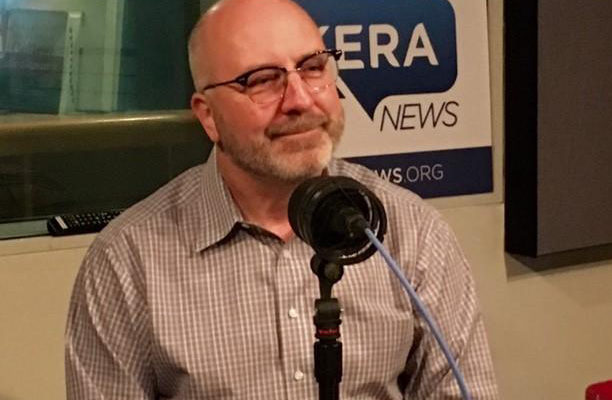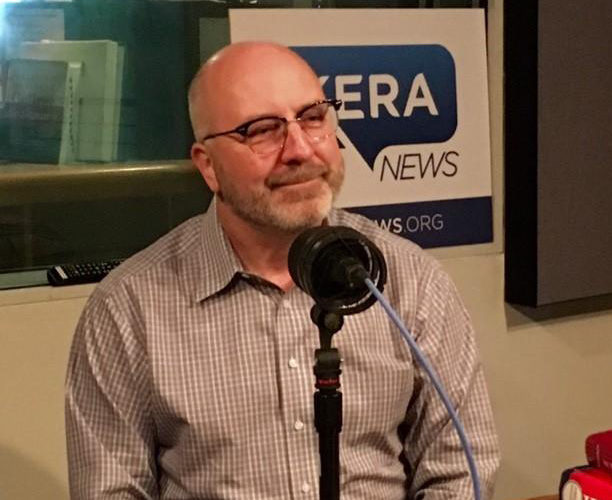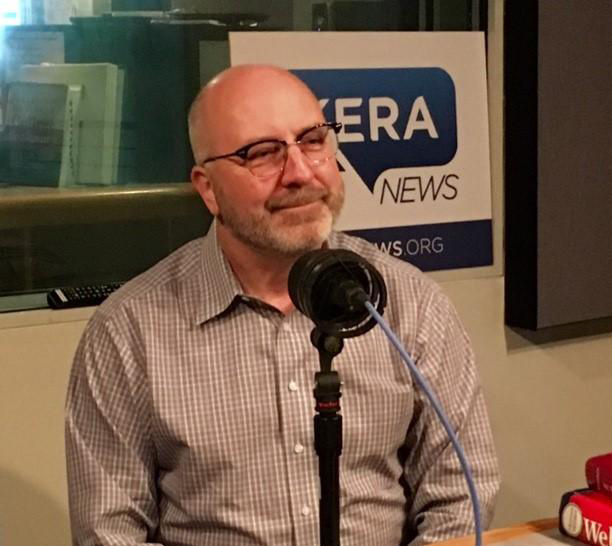A Cooperative Baptist Fellowship pastor and contributing columnist to Baptist News Global described 768 words that transformed his ministry in a TEDx Talk presentation now available online.
Mark Wingfield, associate pastor of Wilshire Baptist Church in Dallas, spoke in November at the fourth annual TEDxCharlottesville in Charlottesville, Va., about response to his BNG column dated May 13, 2016.
Titled “Seven things I’m learning about transgender persons,” the column went viral. It and a follow-up piece logged nearly a million page views on BaptistNews.com, shattering previous records for most-viewed articles for Baptist News Global and the predecessor news service Associated Baptist Press.
It also transformed Wingfield – a former career journalist who sits on the board of directors of Baptist News Global — into an unlikely spokesman for what he described in his talk as “one of the most misunderstood, maligned, mistreated people groups of our time.”
Wingfield’s accidental advocacy began when Wilshire Baptist Church began discussions about whether to formally include LGBT individuals into all areas of the church’s life and work.
“This has been the most difficult and painful conversation I’ve ever known in my lifetime in the church,” Wingfield said. “We have lost members. We have lost money. We’ve lost friends, simply for asking the questions that we’ve posed.”
Along the way some members of the committee noticed a lot of information regarding gays and lesbians was coming their way, but very little about the “B” and “T” categories in the acronym.
Two members of study group — a pediatrician in a low-income clinic with a number of LGBT patients and a geneticist — put together a presentation on the difference between gender identity and sexual orientation to lend insight into the transgender experience.
“We learned that gender identity is about who you are, and sexual orientation is about who you love, and that these are different things and often unrelated to each other,” Wingfield recalled.
Wingfield said he couldn’t stop thinking about the presentation and over time felt compelled to write about it. Even though he wasn’t scheduled to submit a column that week, in about 45 minutes he composed a first-person piece beginning with the admission: “The truth is that I don’t know any transgender persons — at least I don’t think I do.”
Wingfield said he didn’t even know the column had been published until he woke up to Facebook messages, emails and voice mails from readers responding to what he had written. He and his wife spent part of the day watching the rapid real-time shares, likes and comments on social media — a mesmerizing experience “like watching an electric meter spin on a hot summer day in Texas.”
Over the next two weeks Wingfield spent every free moment responding to more than 450 people who either wrote or called. He said about 95 percent of the response was positive.
“Most moving of all to me were transgender persons who wrote to me to say: ‘I read that you don’t know any transgender persons. I’d like to be your transgender friend,’” he said.
Those initial contacts led to a series of face-to-face meetings.
“They were shocked that a Baptist pastor would sit down and listen to them, and I was shamed to hear their stories of repression and persecution and rejection and to understand how difficult it is even to use a public restroom in peace,” he recounted.
Wingfield said nearly everyone he met said they knew their self-perception and biological sex mismatched from early in childhood. Many found peace after accepting that reality, but coming out often caused problems within their family, and everybody lost friends.
“One of the most difficult things to hear in these communications has been the number of transgender persons and their family members who are people of deep and abiding faith but have been rejected, expelled, kicked out of churches and other communities of faith, simply because they or someone they love is transgender, and the church does not know what to do with it,” Wingfield said. “The most frequent question I was asked in my communications is this: Does God still love me?”
Wingfield described his conversion on transgender issues not so much as from hatred to love but rather “a transformation from indifference to compassion.”
“Let’s face it, I am one of the least likely spokespersons for the transgender community,” Wingfield said. “And yet one of the things I’ve learned through this is that often we don’t get to choose our causes. They choose us.”
“Because of what I have heard and learned, it is time for me to speak up and help others understand,” he said.
The TEDx Program is designed to help communities, organizations and individuals to spark conversation and connection through local experiences similar to the TED Talk, a phenomenon that began with a 1984 conference about the convergence of technology, entertainment and design that morphed into other short videos of “ideas worth spreading” on a variety of topics.
The first six TED Talks were posted online 2006. In 2012, video views topped 1 billion.



